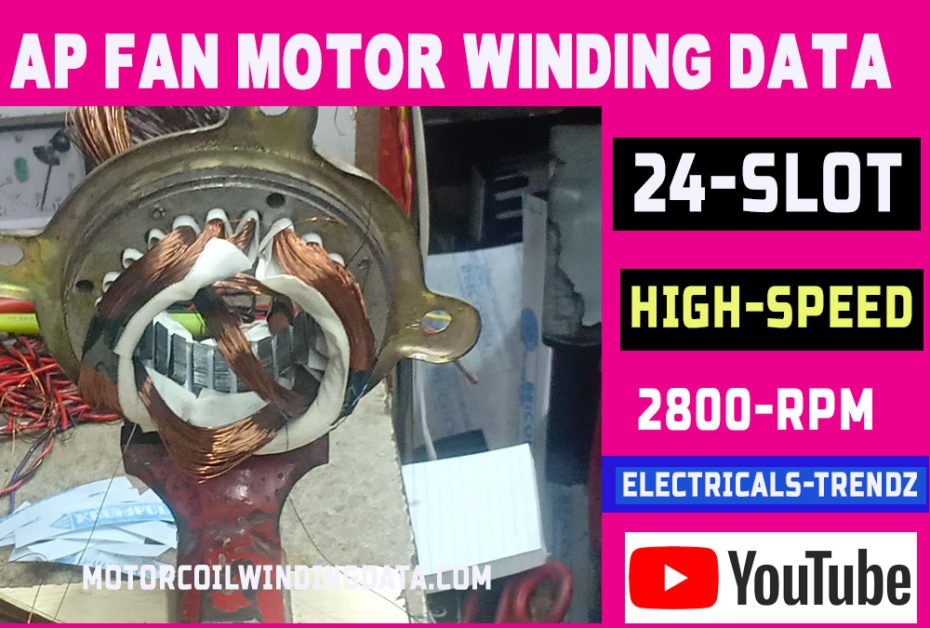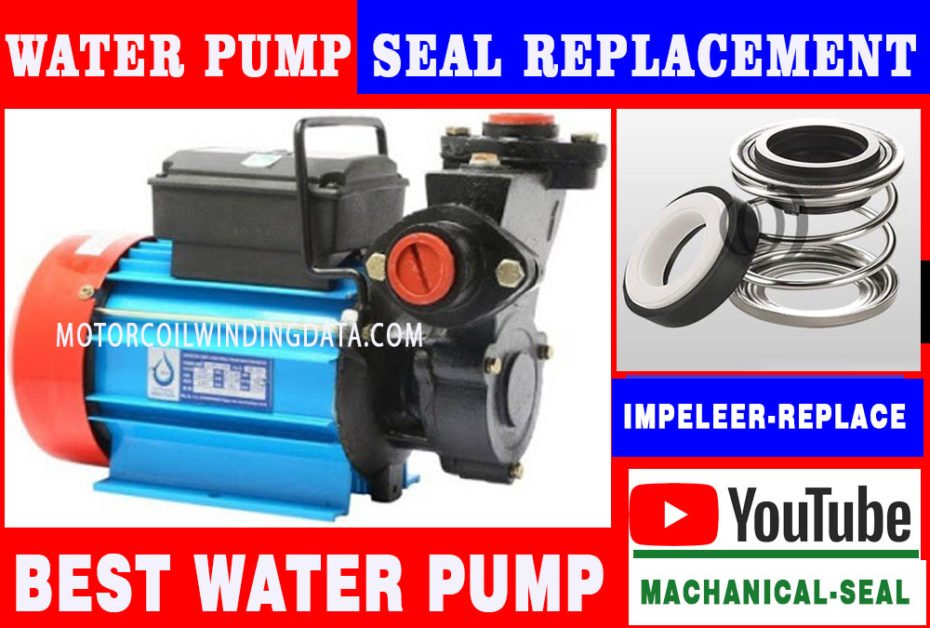Cooler motor winding 2024: Welcome to Motorcoilwindingdata.com. In today’s post, we will tell you how to Cool motor winding in 2024. If you are facing a 24-slot cooler motor winding problem, read this post until the end.
Topics Cover In This Post
- 1 Cooler Motor Winding.
- 2 कूलर मोटर वाइंडिंग डाटा?
- 3 What is Cooler Motor Winding?
- 4 About Cooler Motor Winding
- 5 All Types of Motor Winding Tools Motor Farma With Price
- 6 Cooler Motor Winding Data 2024?
- 7 Cooler Motor Price?
- 8 Latest Cooler Motor Price?
- 9 Cooler Motor Winding Connection Diagram:-
- 10 Cooler Motor Winding Data 2024 Video:-
- 11 Cooler Motor Price:-
- 12 Top Order On Cooler Motors.
Cooler Motor Winding.
Cooler Motor Winding for coolers is a crucial component of cooler performance and involves coiling wires within the motor to generate magnetic fields that allow for efficient operation. It doesn’t matter if it’s a five-blade cooler motor winding, 3-speed cooler motor winding or even specialized configurations such as a 24-slot motor for cooler winding precise data is crucial for longevity and efficiency. If you’re looking to learn the best way to wind the motor of a cooler or searching for information on the winding of cooler motors for brands such as Symphony and others, sources like Motor coil winding information on com can provide useful information. Local services also offer cooling motor winding solutions for repairs and maintenance, assuring high-quality cooling performance.
In this post, we have told how to rewind the Cooler Motor Winding in 3 speeds. How many turns will there be in a 3-speed cooler motor, and how much pitch will there be, you will know everything in this post, so see this post completely so that you do not face any problems in rewinding the cooler motor.
Cooler Motor Winding Data.
- Slot = 24
- Core Length = 1 inch
- Inner Diameter = 3 Inch
- Outer Diameter = 5 inch
Running Winding Data
| Cooler Motor Coil Pitch (Running) | Cooler Motor Coil Turn |
|---|---|
| 1 – 4 | 150 ( 1 Round ) |
| 1 – 6 | 300 ( 1 Round ) |
| Swg Wire Number | 29 Number |
| Motorcoilwindingdata.com | Motorcoilwindingdata.com |
| Cooler Motor Winding Type | Copper Winding |
| Coil Size | 25 Inch |
Starting Winding Data.
| Cooler Motor Coil Pitch (Starting) | Cooler Motor Coil Turn |
|---|---|
| 1 – 4 | 150 ( 1 Round ) |
| 1 – 6 | 300 ( 1 Round ) |
| Swg Wire Number | 33 Number |
| Motorcoilwindingdata.com | Motorcoilwindingdata.com |
| Cooler Motor Winding Type | Copper Winding |
| Coil Size | 25 Inch |
कूलर मोटर वाइंडिंग 2024:- MotorcoilwindingData.com में आपका स्वागत है।आज की पोस्ट में, हम आपको बताएंगे कि 2024 में मोटर कूलर मोटर वाइंडिंग को कैसे कूलर करना है। यदि आप 24-स्लॉट कूलर मोटर वाइंडिंग समस्या का सामना कर रहे हैं, तो इस पोस्ट को अंत तक पढ़ें।
कूलर मोटर वाइंडिंग डाटा?
कूलर मोटर वाइंडिंग डाटा किसी भी कूलर मोटर को रिपेयर या रीवाइंड करने के लिए बेहद महत्वपूर्ण है। इसमें वाइंडिंग पैटर्न, तार की मोटाई (गेज), कॉइल के टर्न्स और स्लॉट की जानकारी शामिल होती है। खासतौर पर 24-स्लॉट कूलर मोटर के लिए, यह डाटा बताता है कि प्रत्येक स्लॉट में कितनी कॉइल्स होंगी, वाइंडिंग का प्रकार (सिंगल या डबल लेयर), और 3-स्पीड मोटर्स की विशिष्टताएँ जो आमतौर पर एयर कूलर्स में उपयोग होती हैं। सही वाइंडिंग डाटा का उपयोग करके, मोटर को उसकी अधिकतम क्षमता और दक्षता पर चलाया जा सकता है।
अगर आप कूलर मोटर वाइंडिंग या रीवाइंडिंग सीखना चाहते हैं, तो यह जानकारी आपके लिए बहुत उपयोगी साबित होगी।
This post will provide detailed answers to all the questions related to Cooler motor winding data.
What is Cooler Motor Winding?
24 Slot Cooler Motor Winding Data at MotorCoilWindingData.com
Looking for reliable information on Cooler motor winding? You’ve come to the right place! MotorCoilWindingData.com provides detailed guides and data for 24-slot cooler motor winding, including configurations for 3-speed cooler motors, exhaust fans, and more.
Our resources cover:
- 24 slot cooler motor winding data for precise rewinding.
- Step-by-step instructions for rewinding 24 slot cooler motors and air cooler motor winding.
- Specifications for local cooler motors, 5-blade cooler motors, and 3-speed motors.
- Insights on copper winding techniques and cooler motor rewinding in Hindi.
- Exhaust fan winding data for 24-slot motors and other essential details.
Whether you’re searching for how to wind a cooler motor or need access to all cooler motor winding data, we’ve got you covered! Perfect for professionals and DIY enthusiasts.
Visit MotorCoilWindingData.com today to get started with cooler motor winding techniques!
Cooler motor winding is a process in which the driver wires around a core are winded, which is then included in the motor of a cooling system. This winding plays an important role in operating various cooling devices, such as fridges, air conditioners, and industrial cooling units.
Cooler motor winding helps the motor to generate the required magnetic field for proper work, making the ability to remove heat from the system to maintain the desired temperature. The operation of correct and competent cooler motor windings ensures that the correct work of cooling equipment is done, which improves their energy efficiency and reliability.
In This Article:-
- Introduction to Cooler Motor Winding
- Importance of Efficient Motor Winding
- Understanding Cooler Motor Winding
- Types of Cooler Motor Windings
- Materials Used in Cooler Motor Winding
Factors Affecting Cooler Motor Winding Efficiency
- Temperature
- Voltage
- Current
Common Issues with Cooler Motor Windings
- Overheating
- Short Circuits
- Insulation Failure
Cooler Motor Winding: Ensuring Efficient Cooling Systems
Cooler motor winding is a crucial aspect of maintaining efficient cooling systems in various applications, ranging from household refrigerators to industrial cooling units.
Understanding the intricacies of cooler motor winding not only ensures optimal performance but also extends the lifespan of cooling equipment. In this article, we delve into the significance of efficient motor winding, the components involved, common issues, and techniques for enhancing performance.
Importance of Efficient Motor Winding
Efficient motor winding is essential for the proper functioning of cooling systems. It determines the overall performance and energy efficiency of the motor, directly impacting the cooling capacity and reliability of the system. A well-wound motor ensures consistent cooling without excessive energy consumption, thereby reducing operational costs and environmental impact.
About Cooler Motor Winding
Types of Cooler Motor Windings
Cooler motor winding can be classified into various types based on the design and application requirements. Common types include lap windings, wave windings, and concentric windings, each offering distinct advantages in terms of efficiency and performance.
Materials Used in Cooler Motor Winding
The materials used in cooler motor winding play a critical role in its performance and longevity. Copper wire is the most commonly used material due to its excellent conductivity and durability. Additionally, insulation materials such as enamel and polyester resin are essential for protecting the windings from environmental factors and electrical interference.
All Types of Motor Winding Tools Motor Farma With Price

Cooler Motor Winding Data 2024?
Cooler Motor Stamping Size
The Cooler Motor Winding Data 2024?
| Cooler Motor Winding Data | Cooler Motor Winding Data |
|---|---|
| Slot | 24 |
| Rpm | 1440 |
| Watts | 377 |
| Voltage | 220-240 (Single Phase Supply ) |
| Capacitor | 4 Mfd |
| Core Length | 1 Inch |
| Inner Diameters | 3 Inches |
| Outer Diameter | 5 Inches |
| Pole | 4 Poles |
| Copyrights | Motorcilwindingdata.com |
| Winding Wire | Copper Winding |

24 Slot Cooler Motor Running Winding Data
Cooler Motor Running Winding Called Primary Winding 24 Slot Cooler Motor Running Winding Coil Pitch 1 to 4 & 1 to 6, and the Cooler Motor Primary Winding Coil Turn in 1 to 4 Pitch 150 Turns and 1 to 6 Pitch 300 Turns. Coil Layer will be in 1 to 4 Pich 1 Layer and In 1 to 6 Pitch 2 Layers.
The cooler motor’s primary Winding wire number is 29 number, and the winding wire type will be Copper wire winding.
Cooler Motor Primary Winding Data Images:-

| Coil Pitch | Coil Turn | Coil Layer | Wire Number | Coil Size | Slot |
|---|---|---|---|---|---|
| 1- 4 | 150 | 1 Round | 29 Number Copper Wire | 25 INCH | 24 Slot |
| 1-6 | 300 | 2 Round | 29 Number Copper Wire | 25 Inch | 24 Slot |
Cooler Motor Price?
The Price of a cooler motor varies depending on its type, specifications, and brand. Generally, a basic cooler motor for home air coolers can cost anywhere between ₹500 to ₹1500 in India. For more advanced models like 3-speed cooler motors, 5-blade motors, or heavy-duty industrial cooler motors, prices can range from ₹1500 to ₹5000 or more.
Factors influencing the price include:
- Motor Size and Power (e.g., 1/12 HP, 1/10 HP, etc.)
- Brand and Quality
- Material (e.g., copper winding motors are usually more expensive than aluminium ones)
- Warranty and After-Sales Service
For accurate pricing, check with local suppliers or online marketplaces.
Latest Cooler Motor Price?

Cooler Motor Starting Winding Data
Cooler Motor Starting Winding, also Called Cooler Motor Secondary Winding, 24 Slot Cooler Motor Running Winding Coil Pitch 1 to 4 & 1 to 6, and the Cooler Motor Primary Winding Coil Turn in 1 to 4 Pitch 165 Turns and 1 to 6 Pitch 330 Turns. Coil Layer will be in 1 to 4 Pitch 1 Layer and In 1 to 6 Pitch 2 Layers.
The cooler motor’s Secondary Winding wire number is 33 number, and the winding wire type will be Copper wire winding.
- Coil Pitch = 1-4 & 1-6
- Coil Turn = 165 & 330
- Coil Layer = 1 & 2
- Wire No = 33 Number
- Wire Type = Copper Wire
Motor Secondary Winding Data Images:-

| Coil Pitch | Coil Turn | Coil Layer | Wire Number | Coil Size | Slots |
|---|---|---|---|---|---|
| 1-4 | 165 | 1 Round | 33 Number Copper Wire | 25 INCH | 24 Slot |
| 1-6 | 330 | 2 Round | 33 Number Copper Wire | 25 INCH | 24 Slot |
Cooler Motor Winding Connection Diagram:-
A 3-speed cooler motor typically has three winding terminals for different speeds (low, medium, and high) and one common terminal. Here’s a basic guide to understanding the connection diagram:

Cooler Motor Connection Terminals:
- Common Terminal (C): Connected to the neutral wire.
- High-Speed Terminal (H): Directly connected to the live wire to provide the highest speed.
- Medium-Speed terminal (M): Connected to the live wire by the medium-value resistor, or capacitor.
- Low Speed Terminal (L): Connected to the live wire by an additional resistor or capacitor.
Capacitor Connection:
A capacitor is a connection via the normal terminal to one of the speed connectors (commonly called H) to boost the starting torque and to ensure smooth operation.
Switching Mechanism:
A 3-speed rotary or button switch can be used to choose the speed you want through the connection of the live wire with the appropriate terminal (H M, H or L).
Diagram Description:
- Neutral (N): Connected to the common terminal (C).
- Live (L): Switched to the H, M or L terminal, based on the speed selected.
- Capacitor It is located between H and C.
Cooler motor winding connection diagram:-
Cooler Motor Winding Data 2024 Video:-
24-Slot Cooler Motor Winding Video
36 Slot Cooler Motor Winding Video:-
Cooler Motor Price:-
Cooler Motor Price:-The cost of motors that cool in India will vary based on a variety of factors, including the model, brand and other specifications. In the average, a Cooler motor will cost you anywhere between Rs500 and Rs2000.
However, more sophisticated and high-capacity motors equipped with extra features could cost more that range from Rs2000 to Rs5000 and up.
It is essential to take into consideration aspects like the efficiency of your energy use, the durability of your motor and warranties while comparing costs and deciding on the right cooler motor for your expectations. Furthermore, prices could differ little between locations and retail outlets, so it’s recommended to look at several sources to find the most competitive prices.
Top Order On Cooler Motors.
| Brand | Capacity | Colour | Control | Warranty | Buy On Amazon |
|---|---|---|---|---|---|
| Crompton | 75 litres | White & Teal | Remote | 1 Year | Buy Now |
| Symphony | 75 litres | Grey (Old model) | Manual | 1 Year | Buy Now |
| HAVAI | 70 litres | Black | Manual | 1 Year | Buy Now |
| HAVAI | 110 Litres | Black | Manual | 1 Year | Buy Now |
| Symphony Diet | 50 litres | Grey | Remote | 1 Year | Buy Now |
| Crompton | 45 Litre | White | Manual | 1 Year | Buy Now |
No products found.
Check the Cooler Motor’s Latest Price here:-

FAQs (Frequently Asked Questions)
How often should cooler motor windings be inspected?
Cooler motor windings should be inspected at least annually, with additional inspections scheduled if any unusual symptoms or issues arise.
What Are Steps For Motor Rewinding
1. Disassembly: Begin by carefully disassembling the motor, taking note of the arrangement of components and wiring. Label or document the connections to facilitate reassembly later.
2. Assessment: Inspect the condition of the motor windings, including the wire insulation, coils, and core. Identify any damage, wear, or overheating signs that may necessitate rewinding.
3. Removal of Old Windings: Carefully remove the old windings from the motor’s stator or armature. Use appropriate tools and techniques to avoid damaging the core or other components.
4. Cleaning: Thoroughly clean the stator or armature core to remove any debris, dirt, or old insulation material. Ensure the surface is smooth and free of contaminants to promote proper adhesion of new windings.
How often should cooler motor windings be inspected?
Cooler motor windings should be inspected at least annually, with additional inspections scheduled if any unusual symptoms or issues arise.
Can cooler motor windings be repaired if damaged?
In some cases, damaged cooler motor windings can be repaired through rewinding or insulation replacement. However, it’s essential to consult a qualified technician for proper assessment and repair.
What are the signs of insulation failure in cooler motor windings?
Signs of insulation failure include overheating, erratic motor behaviour, unusual noises, and visible damage to the insulation material.
How can I improve the energy efficiency of cooler motor windings?
Improving insulation quality, reducing operating temperatures, and employing energy-efficient motor designs are effective strategies for enhancing the energy efficiency of cooler motor windings.
Is it necessary to use specific types of wire for cooler motor winding?
High-quality copper wire with suitable insulation materials is crucial for ensuring optimal performance and longevity of cooler motor windings.



